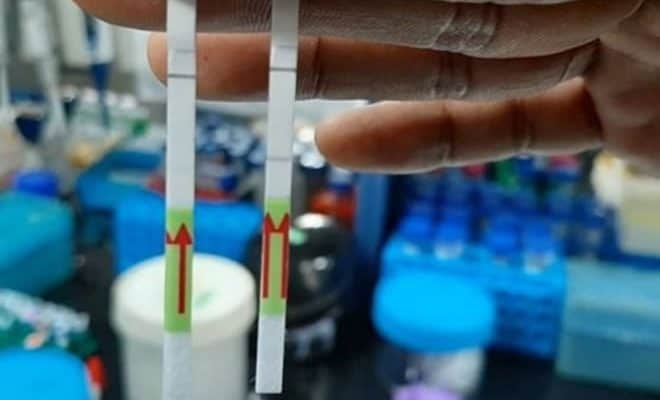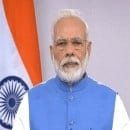India develops one-hour paper test for COVID-19

Last updated on February 17th, 2023 at 12:10 pm
The test kit, named Feluda, is based on gene-editing technology and can deliver highly accurate results within the hour.
Its discovery has been called a game-changer. Similar to a pregnancy test, Feluda is a paper-based test for the coronavirus that costs less than Rs 500 and can return results within an hour. Developed in the Delhi-based CSIR-Institute of Genomics and Integrative Biology, the test has been described as “simple, precise, reliable, scalable and frugal”. It has been approved for commercial use in India and will be manufactured by Tata Industries.
Testing samples from 2,000 patients, scientists concluded that the test had 96% sensitivity (reducing the risk of false negatives) and 98% specificity (ensuring there aren’t too many false positives). Currently, there are two tests being used in India – the trusted but expensive PCR tests and the fast antigen tests which are prone to show false negatives. There are long wait times and unavailability of kits and scientists are hopeful about Feluda replacing a majority of the antigen tests. After a slow start, India is conducting almost one million tests per day in more than 1,200 laboratories across the country.
Samples for the Feluda test will be extracted through a nasal swab and the virus will be detected through gene-editing technology or Crispr (Clustered Regularly Interspaced Short Palindromic Repeats). It reads the genes carrying the signature of the coronavirus and gives a read-out on the paper. Two blue lines indicate a positive result while a single blue line means the test is negative.
This is considered the “third wave of tests” and is being developed by teams in the US and the UK. The Indian team behind this development is now working on a prototype that can extract and amplify RNA using PCR at home. The idea is to develop simple, inexpensive and point-of-care tests that are not dependent on trained people or specialised machines. This is the only way countries like India, with a huge population, can test enough number of people and control the spread of the disease. And even after the vaccines are made available, testing will continue to play an important part in pandemic control.
Read: ACU on alert after a player reached out the unit to complaint against a corrupt practice



